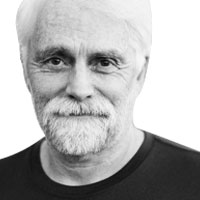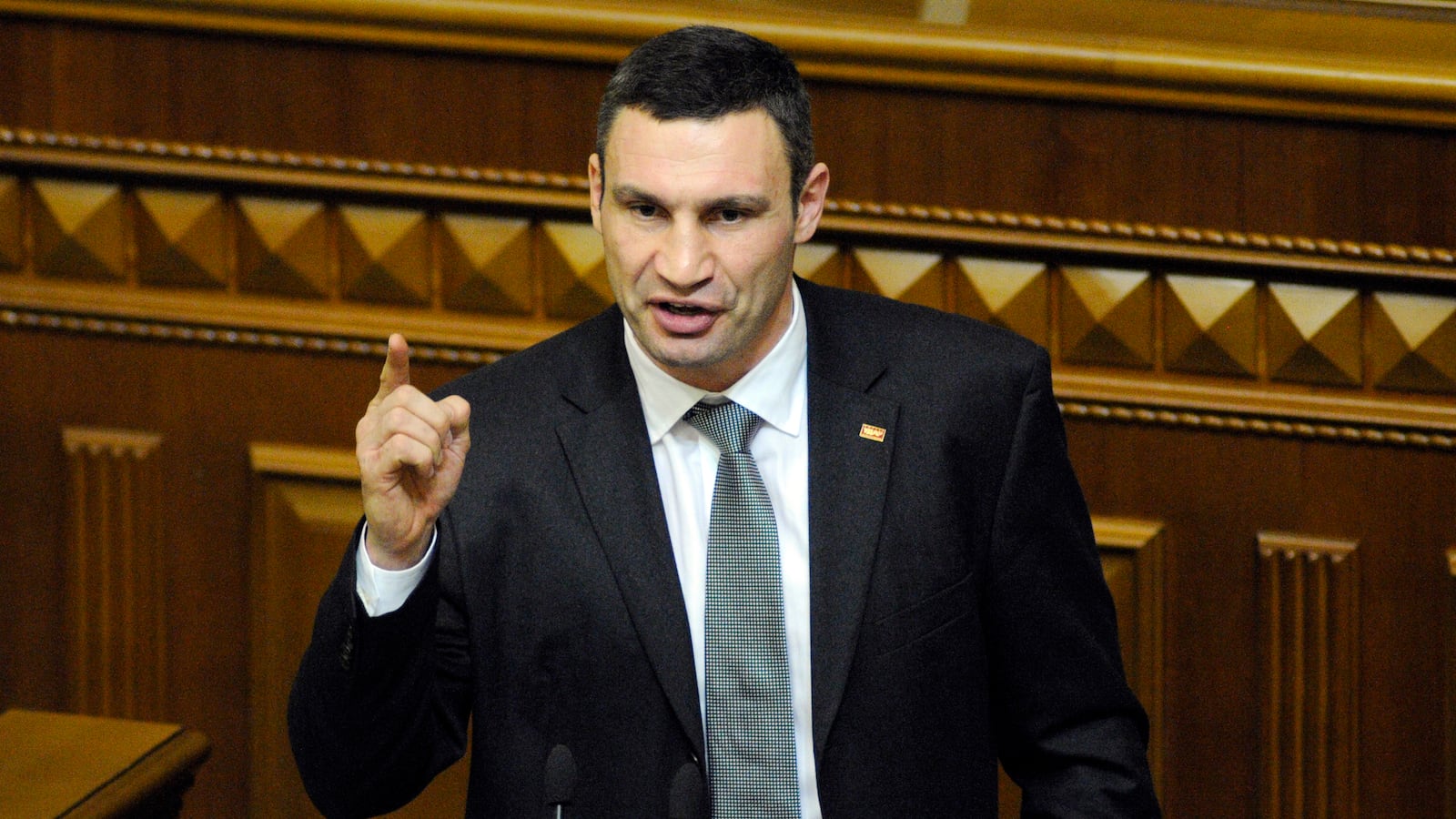Though few realize it, one of the most dominant heavyweight champions in boxing history is on the cusp of retirement. When Vitali Klitschko (45-2, 41 knockouts) made his professional boxing debut in 1996, the six-foot-seven son of a Soviet Air Force colonel was one of a new generation of super-size heavyweights. Now 17 years and 46 bouts later, the WBC heavyweight king is near the end of his reign. As Klitschko recently put it, “Sports have always been in my heart, but it is impossible to continue boxing into old age. Now I’m 41 years old and my professional boxing career is coming to an end.”

Klitschko breaks every rule in the book of boxing technique. Shuffling around the ring he has the footwork of a tyrannosaurus. He holds his left arm at his side and paws with it to set up whacks from the big stick of his right. But Klitschko is no Primo Carnera—the first giant heavyweight champion and an ersatz fighter who was set up by the mob.
Far from it, the fighter known as “Dr. Ironfist” (for the Ph.D. he holds in sports science) boasts the highest knockout percentage in history, turning the black lights out on more than 87 percent of his opponents. In all his years in the ring, Klitschko has never been knocked off his sizable feet and he has barely lost a round since his 2003 defeat in an epic battle with Lennox Lewis. Although he enjoys Michael Jordan-like fame in much of Europe and routinely fills arenas when he tussles in Germany, Klitschko has never caught on as a pay-per-view attraction in the United States.
When it comes to heavyweights, Americans have a boxing aesthetic that differs from Europe, an aesthetic that values not only knockout power but also demands a willingness to take unnecessary risks. Much to the distaste of American boxing fans, Klitschko’s attacks have always been surgical. Like a picador, he takes his time to sap the strength of his foes before clubbing them unconscious.
One of the most daunting challenges for elite professional boxers is developing a passion for something outside the ring. I once pressed future Hall of Famer Miguel Cotto as to what got him excited beyond the exchange of punches. Nonplussed, he thought for a moment, smiled, and meekly confessed, “Nothing I guess—just boxing and my family.” Vitali Klitschko is a striking exception to that rule. An important participant in the 2004 Orange Revolution and now a prominent member of the Ukrainian Parliament, Klitschko becomes more animated talking about oil prices or corruption than he does about the sweet science.
A disciplined and driven individual with a laser focus and heavyweight ability to compartmentalize, Klitschko recently reflected back on the time when he first entered the political fray. “There’s a saying,” he said, “if you don’t engage in politics, then politics will engage you. Maybe it sounds arrogant, but I decided that my country needs a change. Ukrainians deserve a better life ... I saw how people live in Europe and the U.S. and came to politics to introduce standards of living, values, rights, and freedoms of the European community in my country.”

Klitschko is the standard bearer for UDAR (Ukrainian Democratic Alliance for Reform) which in English appropriately translates as “punch.” In the October elections, UDAR won more than 13 percent of the seats in Parliament. When asked how boxing prepared him for the political arena, Klitschko is clear: “Success in any sport requires concentration, training, determination and talent. Sports gave me the will to win, the ability to make quick decisions, to realize their full potential. These qualities are very important in politics.”
Klitschko added, “In the ring they call me Dr. Ironfist. Perhaps some expected me to begin my parliamentary career by bashing heads, literally. However, I said early on that my style in politics will be focused on the battle for ideas that lead to changes in Ukraine.”
Though the champion has so far remained quiet about his political future, there is serious speculation that he might run for mayor of Kiev or even for president in 2015. A high-ranking Ukrainian official assessed, “Vitali is very charismatic and a healthy political figure. I think he has very good prospects. The only obstacle might be the complexity of the Ukrainian political scene and the fact that his foes will have much more experience in the messy infighting of Ukrainian politics.”
Some athletes who become politicians soon find out that they savor the idea of being an elected official more than they enjoy the often tedious work of day-to-day politics. As a pugilist, Klitschko never cut corners in training and as a politician he has not shied away from the boring details of policy making. Nevertheless, many boxers find it hard to walk away from the high wire act of high stakes professional boxing. But Klitschko does not anticipate any withdrawal problems from combat sports. Pressed as to whether he would miss the adrenaline rush of the arena, he pointed to a recent brawl between officials, and quipped, “As you can see from some of the photos of the Ukrainian Parliament’s first session in December, there’s a lot of adrenaline in the Parliament session hall.”






